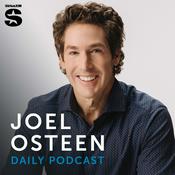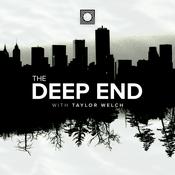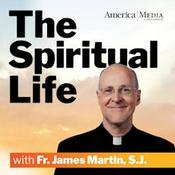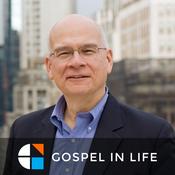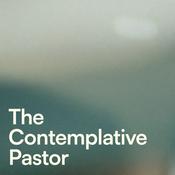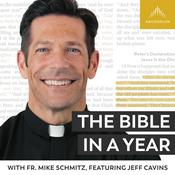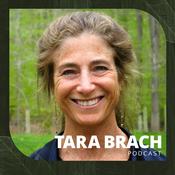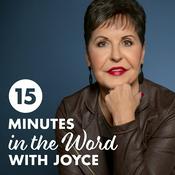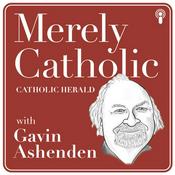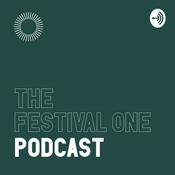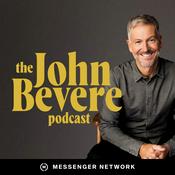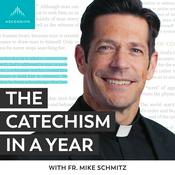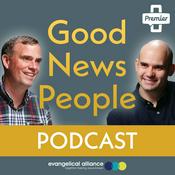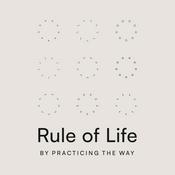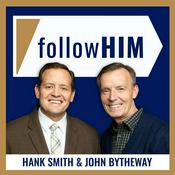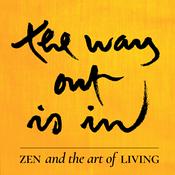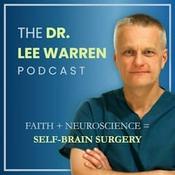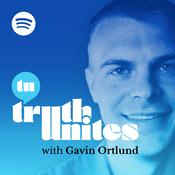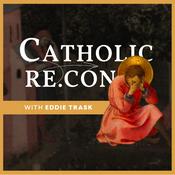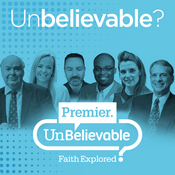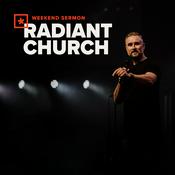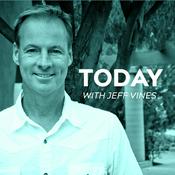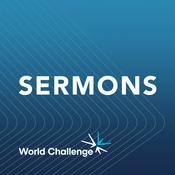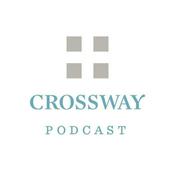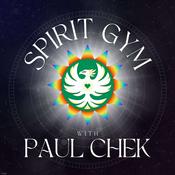228 episodes
- Send us a text
Why would a powerful, respected spiritual leader abandon comfort, status, and certainty to join a nation of former slaves in the desert?
In this morning’s class, Rabbi Yisroel Bernath explores the story of Jethro—not as ancient history, but as a living mirror. Through a surprising Talmudic question, we uncover what Jethro really heard that compelled him to move from observer to participant.
This class weaves together three forces that define the Jewish story, irrational hatred, the moral genius of Torah, and the supernatural resilience of the Jewish people and asks a deeply personal question:
What does Judaism ask of us when it’s easier to stay comfortable?
Jethro’s journey challenges us to stop watching Jewish life from the sidelines and start stepping into it with intention, courage, and responsibility.
KEY TAKEAWAYS
Being inspired is easy. Showing up changes everything.
Irrational hatred is often the shadow cast by something deeply holy.
Torah isn’t just tradition, it’s a radical moral framework that reshaped civilization.
Jewish survival defies history, logic, and probability.
You don’t need to be born into greatness, but you do need to choose it.
Judaism isn’t meant to be admired from a distance, it’s meant to be lived.
The real question isn’t what did Jethro hear? It’s what are we hearing—and what are we doing about it?
#Jewish #Judaism #Torah #Bible #BibleStudy #TorahLessons #Jethro #FromFanToPlayer #JewishIdentity #TorahLife #PurposeOverComfort #LivingJudaism #JewishResilience #WhyBeJewish #KabbalahForEveryone #RabbiBernath #JewishNDG #MeaningOverConvenience #StepIntoTheStory
Available now:
Paperback (US): https://www.amazon.com/Forgiveness-Experiment-What-Would-Your/dp/1069217638
Paperback (Canada): https://www.amazon.ca/dp/1069217638
Kindle: https://www.amazon.com/dp/B0FR2QNJL6
Support the show
Got your own question for Rabbi Bernath? He can be reached at [email protected] or http://www.theloverabbi.com
Single? You can make a profile on www.JMontreal.com and Rabbi Bernath will help you find that special someone.
Donate and support Rabbi Bernath’s work http://www.jewishndg.com/donate
Follow Rabbi Bernath’s YouTube Channel https://www.youtube.com/user/ybernath
Access Rabbi Bernath's Articles on Relationships https://medium.com/@loverabbi The Forgiveness Experiment Book Launch | Rabbi Yisroel Bernath in conversation with Ilana Zackon
31/1/2026 | 59 mins.Send us a text
You don’t often see a book launch feel like a collective exhale.
This recording is from the Montreal launch of The Forgiveness Experiment, featuring the author Rabbi Yisroel Bernath in conversation with Ilana Zackon.
Ilana Zackon, an award-winning actor, writer, and filmmaker. Together, they dive into the heart of the book: why forgiveness matters, how it changes us, and what it means to live with open hearts even in a fractured world. Expect laughter, honesty, vulnerability, and plenty of inspiration.
Held in the days leading up to Yom Kippur, this wasn’t just a discussion about forgiveness, it was an exploration of freedom. Together, Rabbi Bernath and Ilana unpack the heart of The Forgiveness Experiment:
Why forgiveness isn’t about excusing harm. Why it’s not spiritual bypassing. And why, sometimes, forgiveness is the bravest form of self-respect.
What unfolds is honest, funny, vulnerable, and deeply human. Stories are shared. Assumptions are challenged. And the room slowly softens.
This conversation and the book weaves together Jewish wisdom, lived experience, and psychological insight, offering a grounded, compassionate approach to letting go of pain without losing your truth.
If you’ve ever wondered: Why is forgiveness so hard? Is it possible to forgive without minimizing what happened? What if forgiveness is something I do for myself, not for them?
This conversation is for you.
Since that night, The Forgiveness Experiment has become a #1 bestseller on Amazon, and Rabbi Bernath has traveled across North America sharing its message.
Recorded live at the Montreal Book Launch at Rohr Chabad NDG on September 28, 2025
Filmed and recorded by Yehuda Chiche
Available now:
Paperback (US): https://www.amazon.com/Forgiveness-Experiment-What-Would-Your/dp/1069217638
Paperback (Canada): https://www.amazon.ca/dp/1069217638
Kindle: https://www.amazon.com/dp/B0FR2QNJL6
It's also available on Amazon just about everywhere else, UK, Australia, Europe...
The audiobook is on the way and will be released next week.
If you’d like to take this work a step further check out www.forgivenessbook.org
If this conversation resonates, consider subscribing, sharing, or leaving a review. Your voice helps this message travel further.
#Forgi
Available now:
Paperback (US): https://www.amazon.com/Forgiveness-Experiment-What-Would-Your/dp/1069217638
Paperback (Canada): https://www.amazon.ca/dp/1069217638
Kindle: https://www.amazon.com/dp/B0FR2QNJL6
Support the show
Got your own question for Rabbi Bernath? He can be reached at [email protected] or http://www.theloverabbi.com
Single? You can make a profile on www.JMontreal.com and Rabbi Bernath will help you find that special someone.
Donate and support Rabbi Bernath’s work http://www.jewishndg.com/donate
Follow Rabbi Bernath’s YouTube Channel https://www.youtube.com/user/ybernath
Access Rabbi Bernath's Articles on Relationships https://medium.com/@loverabbi- Send us a text
One of the first things we did together as a people wasn’t march, organize, or strategize. We sang. Standing at the edge of the sea, fresh from fear, not yet healed, still unsure where we were going the Jewish people lifted their voices in song. But the Torah leaves us with a mystery: how did three million people sing one song together? Was it led by Moses? Echoed by the people? Or did each person discover the song within themselves?
In this class, Rabbi Bernath explores an ancient debate that turns out to be a timeless conversation about leadership, growth, and personal responsibility. Is a leader meant to be followed, echoed, or outgrown? And what does it mean to stop repeating someone else’s song and finally sing your own?
Key Points
The Song at the Sea as the birth moment of the Jewish voice.
Three models of leadership hidden in one ancient song
The difference between submission, discipleship, and empowerment.
Why real transformation doesn’t come from echoing, but from ownership.
What it means to be given a match, not a melody.
Takeaways
True leadership doesn’t create followers, it awakens leaders.
Unity isn’t sameness; it’s shared purpose with individual voice.
You don’t need permission to sing what’s already inside you.
The most enduring influence is what continues after the leader steps back.
Your voice matters, not later, not someday, but now.
#Jewish #Judaism #Bible #Torah #chabad #Rebbe #YudShevat #SongAtTheSea #Leadership #FindingYourVoice #ShiratHayam #personalgrowth #JewishWisdom #ParshatBeshalach #Beshalach#InnerFreedom #EmpoweredLiving #SingYourSong #RabbiBernath
Available now:
Paperback (US): https://www.amazon.com/Forgiveness-Experiment-What-Would-Your/dp/1069217638
Paperback (Canada): https://www.amazon.ca/dp/1069217638
Kindle: https://www.amazon.com/dp/B0FR2QNJL6
Support the show
Got your own question for Rabbi Bernath? He can be reached at [email protected] or http://www.theloverabbi.com
Single? You can make a profile on www.JMontreal.com and Rabbi Bernath will help you find that special someone.
Donate and support Rabbi Bernath’s work http://www.jewishndg.com/donate
Follow Rabbi Bernath’s YouTube Channel https://www.youtube.com/user/ybernath
Access Rabbi Bernath's Articles on Relationships https://medium.com/@loverabbi - Send us a text
In Parshat Bo, G-d tells Moses something unexpected: “Come to Pharaoh.” Not go… but come.
In this episode Rabbi Yisroel Bernath explores a profound teaching from the Zohar and Chassidic thought: when we face a “Pharaoh” in our lives… fear, resistance, heartbreak, failure, or a person who seems to block our freedom… we are never sent alone. G-d says: Come with Me.
Even more startling, G-d adds: “Because I hardened his heart.” The resistance itself is Divine. Not to stop redemption, but to reveal it.
Through Torah, Kabbalah, psychology, and powerful stories (including the donkey in the pit and a letter from the Rebbe), this class reframes life’s hardships as portals, not barriers. What feels like opposition is often the very force meant to uncover our deepest strength, courage, and soul-power.
This is a class about fear, faith, resilience and discovering that the path forward is often a winding one, but it always leads upward.
Key Takeaways
You never face adversity alone. “Come to Pharaoh” means G-d walks with you into your hardest moments.
Resistance is not random. Some of the strongest opposition in life is part of the redemption process itself.
Pharaoh is not in control. What looks overwhelming is often a tool, not a tyrant.
Obstacles are portals. Life’s blockages are invitations to excavate hidden strength.
Growth is uncomfortable by design. Muscle only grows by tearing and so does the soul.
The dirt can bury you or elevate you. Shake it off. Step up. Rise.
Your hardest challenges may reveal your greatest light. You discover who you truly are not when life is easy, but when it demands more of you.
#Judaism #chabad #Kabbalah #ParshatBo #Torah #TorahPortion #TorahLessons#ComeToPharaoh #NotAlone #FaithOverFear #KabbalahForLife #SpiritualResilience #PortalsNotBarriers #InnerFreedom #DivinePlan #SoulStrength #JewishWisdom #TheZigZagPath #Redemption #chassidus #RabbiBernath #lubavitch #Rebbe
Available now:
Paperback (US): https://www.amazon.com/Forgiveness-Experiment-What-Would-Your/dp/1069217638
Paperback (Canada): https://www.amazon.ca/dp/1069217638
Kindle: https://www.amazon.com/dp/B0FR2QNJL6
Support the show
Got your own question for Rabbi Bernath? He can be reached at [email protected] or http://www.theloverabbi.com
Single? You can make a profile on www.JMontreal.com and Rabbi Bernath will help you find that special someone.
Donate and support Rabbi Bernath’s work http://www.jewishndg.com/donate
Follow Rabbi Bernath’s YouTube Channel https://www.youtube.com/user/ybernath
Access Rabbi Bernath's Articles on Relationships https://medium.com/@loverabbi - Send us a text
One of the most surprising details in the Exodus story is that Moses, the redeemer of Israel, did not grow up as a slave, but in Pharaoh’s palace.
In this morning’s Kabbalah class, Rabbi Yisroel Bernath explores why Divine Providence chose such an unlikely path for Israel’s future leader and what it reveals about the nature of freedom.
Drawing on Chassidic insights into the word sivlot“ burdens” that also mean tolerance, this class reframes redemption as a psychological and spiritual awakening. True liberation begins not when suffering becomes unbearable, but when we refuse to accept it as normal.
Through the lens of Moses’ outsider perspective, the Israelites’ cry in Egypt, and our ongoing experience of personal and collective exile, the class challenges us to examine what we’ve learned to tolerate in our own lives. With warmth, depth, and practical reflection, this session invites participants to rediscover holy dissatisfaction, reclaim dignity, and begin their own daily Exodus from narrowness to possibility.
Key Takeaways
Redemption begins internally: Before freedom can happen externally, we must stop tolerating what diminishes us.
Tolerance is not always a virtue: Sometimes patience becomes a prison that keeps us stuck in unhealthy patterns.
Moses could lead because he never internalized slavery: Growing up in Pharaoh’s palace gave him the clarity and courage to challenge injustice.
The cry matters: Change begins when we allow ourselves to feel the pain we’ve been numbing and cry out honestly.
Exile becomes dangerous when it feels normal: Personally and collectively, redemption starts when we remember that brokenness is not the natural state.
Standards shape destiny: What we accept defines what we become, raising our inner standards opens the door to transformation.
Every day is an Exodus: Leaving Egypt isn’t a one-time event; it’s a daily practice of refusing limitation and choosing growth.
#Jewish #Kabbalah #Torah #Exodus #TorahPortion #Bible #BibleStudy #Moses #moshe #ParshatVaera #SlaveMentality #Mitzrayim #Tolerance #freedom #PersonalRedemption #chassidus #SlaveMentality #innerExile #EmotionalHealing #spiritualgrowth #Moshiach #Geulah #humandignity #BreakingPatterns
Available now:
Paperback (US): https://www.amazon.com/Forgiveness-Experiment-What-Would-Your/dp/1069217638
Paperback (Canada): https://www.amazon.ca/dp/1069217638
Kindle: https://www.amazon.com/dp/B0FR2QNJL6
Support the show
Got your own question for Rabbi Bernath? He can be reached at [email protected] or http://www.theloverabbi.com
Single? You can make a profile on www.JMontreal.com and Rabbi Bernath will help you find that special someone.
Donate and support Rabbi Bernath’s work http://www.jewishndg.com/donate
Follow Rabbi Bernath’s YouTube Channel https://www.youtube.com/user/ybernath
Access Rabbi Bernath's Articles on Relationships https://medium.com/@loverabbi
More Religion & Spirituality podcasts
Trending Religion & Spirituality podcasts
About Kabbalah for Everyone
You have probably heard about Kabbalah either as a Hollywood phenomenon or something that is beyond the world that we live in. Kabbalah actually has incredible secrets that can transform your daily life. This is your chance to connect to this incredible ancient wisdom and change your life for the better. Cherished for his incredible warmth and non-judgmental personality, this hipster is not your typical rabbi. He is real, raw, unconventional and loved by thousands across the world. Rabbi Bernath has been teaching Kabbalah for over 15 years. He is also the author of three books, and continuously produces engaging content on his many social media & podcast platforms. As a professional voice-over artist, screen-writer and documentarian, he has been a part of dozens of productions, including the award winning CBC Documentary "Kosher Love".
Podcast websiteListen to Kabbalah for Everyone, Joel Osteen Podcast and many other podcasts from around the world with the radio.net app
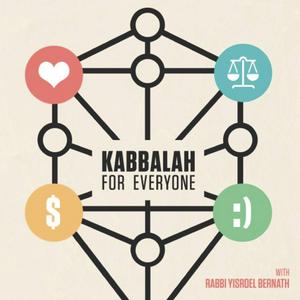
Get the free radio.net app
- Stations and podcasts to bookmark
- Stream via Wi-Fi or Bluetooth
- Supports Carplay & Android Auto
- Many other app features
Get the free radio.net app
- Stations and podcasts to bookmark
- Stream via Wi-Fi or Bluetooth
- Supports Carplay & Android Auto
- Many other app features


Kabbalah for Everyone
Scan code,
download the app,
start listening.
download the app,
start listening.

